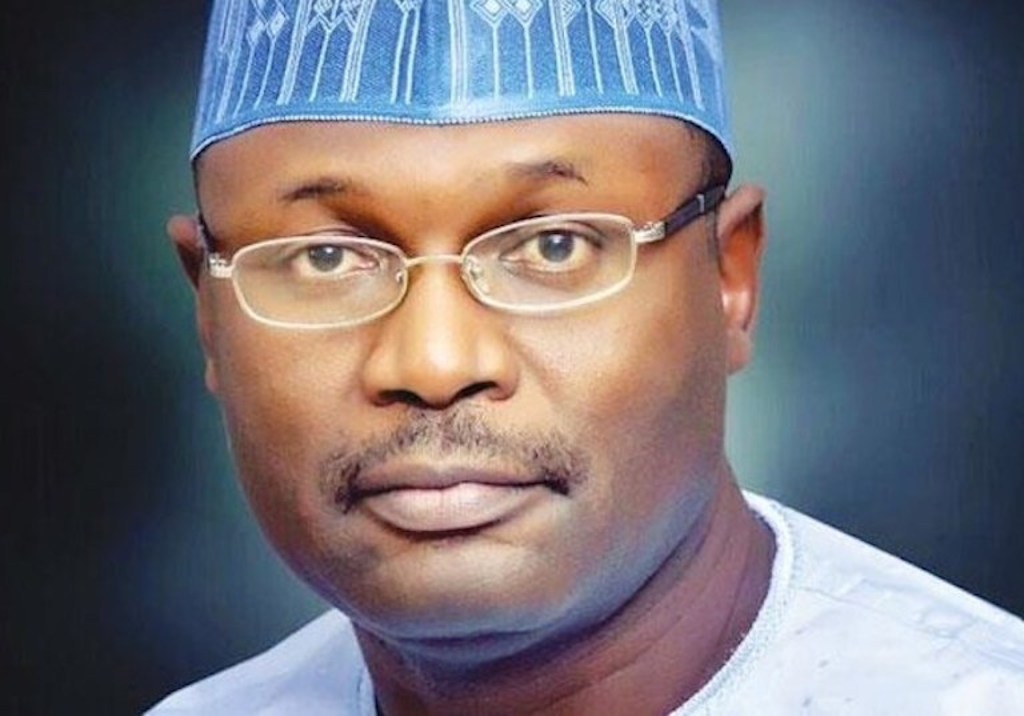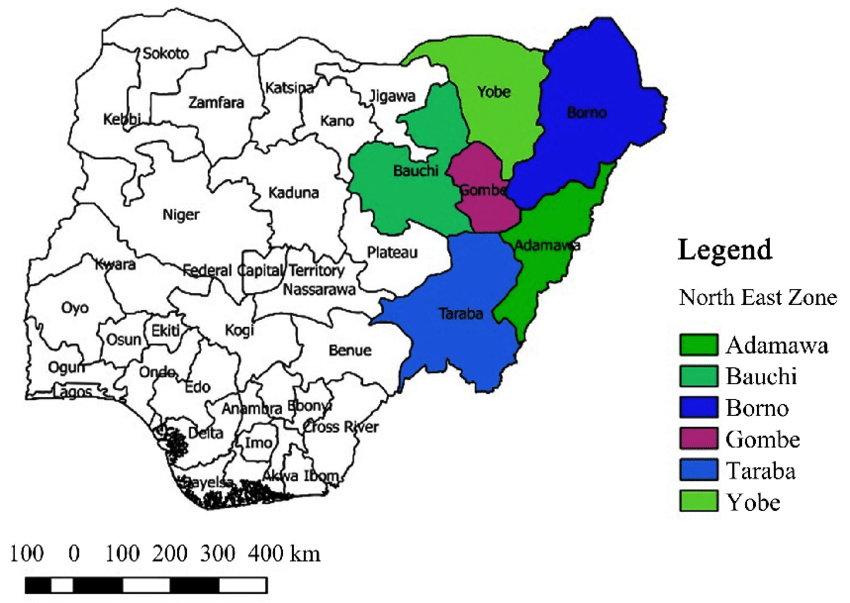No work, no pay: Vice-chancellors plead with government, saying policy will cause more damage
The Committee of Vice-Chancellors (CVC) of Federal Universities has called on the Nigerian government to reconsider its decision on its strict adherence to the “No Work, No Pay” policy in the face of continuing disputes with university workers’ unions .< /p>
The body said the policy could do universities more harm than good.
The Nigerian government has pledged not to pay university workers for the duration of their strike, saying the decision is in line with labor laws.
But labor unions, and in particular the Academic Staff Union of Universities (ASUU), called the policy unfair and unjust.
ASUU has said that teaching is the easiest job for its members, saying it constitutes only about 10% of the criteria for promotion. The union said that during the strike, its members were still working on research and community development projects.
VCs pleadThe Vice-Chancellors said the No Work, No Pay policy would cause more damage to the system and leave students to bear the brunt of the conflict.
The CVC also warned the government against forcing universities to reopen, saying it would be counterproductive.
This is contained in a statement issued by the Chairman of the Vice-Chancellors Committee, Sulayman Abdulkareem, Professor and Vice-Chancellor of the University of Ilorin, after an emergency committee meeting on Tuesday.
The committee had convened an emergency meeting after meeting with Education Minister Adamu Adamu and National Universities Commission (NUC) Executive Secretary Abubakar Abdulrasheed on the same day.
>
The release reads in part; "The government's stance on this (no work, no pay) will create more damage to the system because students would bear the brunt of ASUU's response.
“Universities, due to the particular nature of their operations, must cover the work program provided by the program.
“CVC calls on the Federal Government to reconsider its position and pay the withheld salaries for humanitarian reasons, and in particular in the interest of Nigerian students. Acceptance of this appeal by the Government would undoubtedly facilitate a resolution fast from dead end."
ReopeningThe vice-chancellors noted that the universities had been officially closed and that "the power to open or close a university rests only with the Senate of each university".
He said, "Any attempt to keep students on campus without them being fully engaged in academic and other pursuits can have disastrous consequences."
They also called on the government to provide special reopening grants to universities to renovate rusting facilities following their abandonment during the strike which lasted up to seven months.
"A lot of special equipment, especially in our labs, will need to be recalibrated, physical facilities need to be renovated, and electricity and water bills are unpaid. Since many of us don't have received their overheads, the government will have to support universities with special grants for reopening,” he added.
On salary adjustmentThe Vice-Chancellors, who underscored the need for an upward revision of academic salaries, noted that the current model of the Income, Wages and Salaries Commission and the integrated information system on Staff Payroll (IPPIS) have “depleted Academic and Vice-Chancellor salaries to an all-time low.”
He therefore recommended that the government review the recommendations of the report of the committee led by Nimi Briggs "because their figures represent a better offer which will stem the tide of unrest in universities".
Autonomy, UTASCVC also advocated full autonomy for universities “so that each university governing body can decide the salaries of its employees following a national minimum wage to be agreed by all stakeholders.”
The Minister of Education had announced that IPPIS and the payment platforms preferred by university workers were tested and integrated by a technical committee and that the report would be made public soon.
In this regard, the committee said that the updated platform must recognize the particularities of the university system, as all university unions have pointed out.

The Committee of Vice-Chancellors (CVC) of Federal Universities has called on the Nigerian government to reconsider its decision on its strict adherence to the “No Work, No Pay” policy in the face of continuing disputes with university workers’ unions .< /p>
The body said the policy could do universities more harm than good.
The Nigerian government has pledged not to pay university workers for the duration of their strike, saying the decision is in line with labor laws.
But labor unions, and in particular the Academic Staff Union of Universities (ASUU), called the policy unfair and unjust.
ASUU has said that teaching is the easiest job for its members, saying it constitutes only about 10% of the criteria for promotion. The union said that during the strike, its members were still working on research and community development projects.
VCs pleadThe Vice-Chancellors said the No Work, No Pay policy would cause more damage to the system and leave students to bear the brunt of the conflict.
The CVC also warned the government against forcing universities to reopen, saying it would be counterproductive.
This is contained in a statement issued by the Chairman of the Vice-Chancellors Committee, Sulayman Abdulkareem, Professor and Vice-Chancellor of the University of Ilorin, after an emergency committee meeting on Tuesday.
The committee had convened an emergency meeting after meeting with Education Minister Adamu Adamu and National Universities Commission (NUC) Executive Secretary Abubakar Abdulrasheed on the same day.
>
The release reads in part; "The government's stance on this (no work, no pay) will create more damage to the system because students would bear the brunt of ASUU's response.
“Universities, due to the particular nature of their operations, must cover the work program provided by the program.
“CVC calls on the Federal Government to reconsider its position and pay the withheld salaries for humanitarian reasons, and in particular in the interest of Nigerian students. Acceptance of this appeal by the Government would undoubtedly facilitate a resolution fast from dead end."
ReopeningThe vice-chancellors noted that the universities had been officially closed and that "the power to open or close a university rests only with the Senate of each university".
He said, "Any attempt to keep students on campus without them being fully engaged in academic and other pursuits can have disastrous consequences."
They also called on the government to provide special reopening grants to universities to renovate rusting facilities following their abandonment during the strike which lasted up to seven months.
"A lot of special equipment, especially in our labs, will need to be recalibrated, physical facilities need to be renovated, and electricity and water bills are unpaid. Since many of us don't have received their overheads, the government will have to support universities with special grants for reopening,” he added.
On salary adjustmentThe Vice-Chancellors, who underscored the need for an upward revision of academic salaries, noted that the current model of the Income, Wages and Salaries Commission and the integrated information system on Staff Payroll (IPPIS) have “depleted Academic and Vice-Chancellor salaries to an all-time low.”
He therefore recommended that the government review the recommendations of the report of the committee led by Nimi Briggs "because their figures represent a better offer which will stem the tide of unrest in universities".
Autonomy, UTASCVC also advocated full autonomy for universities “so that each university governing body can decide the salaries of its employees following a national minimum wage to be agreed by all stakeholders.”
The Minister of Education had announced that IPPIS and the payment platforms preferred by university workers were tested and integrated by a technical committee and that the report would be made public soon.
In this regard, the committee said that the updated platform must recognize the particularities of the university system, as all university unions have pointed out.
What's Your Reaction?






















